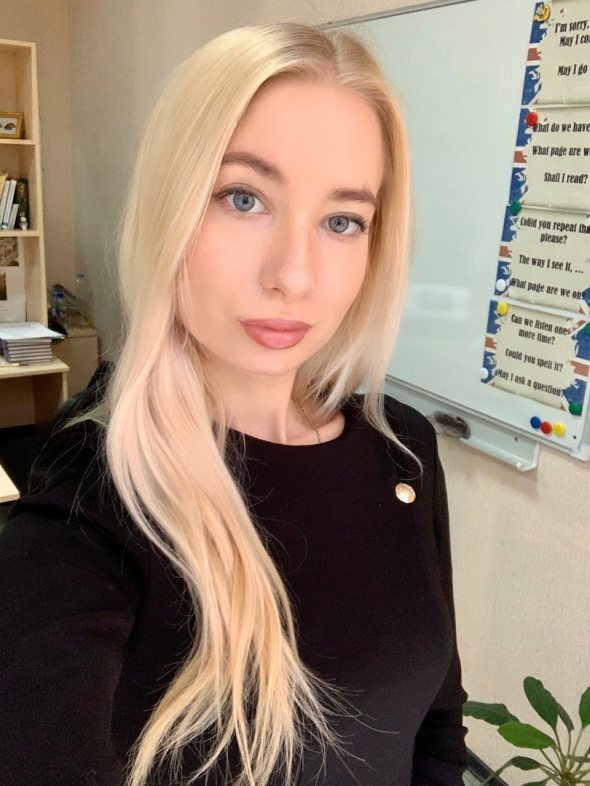Present Progressive (Continuous)-
настоящее длительное время
1). Сфера употребления
Описывает длительное действие, происходящее в настоящий момент.
2). Лексические указания (маркеры, обстоятельства времени)
now – сейчас
at the moment – в настоящий момент
3). Образование
|
am,is,are+Ving | I am speaking English now.- Я говорю по-английски сейчас. Her child is sleeping at the moment.- Её ребёнок спит в данный момент The students are listening to the teacher.-Студенты слушают учителя. |
Правописание окончания-ing
Удвоение конечной согласной перед –ing, если корневая гласная краткая
The car is stopping now. (stop)
Sportsmen are swimming very fast now. (swim)
She is dancing very beautiful now. (dance)
The cat is lying on the sofa. (lie)
*Краткая утвердительная форма Present Progressive (Continuous):
I’m speaking English now.
She’s dancing very beautiful now.
4). Вопросительная форма
Подлежащее
Остальная часть
сказуемого
V-ing
а
Вспомогательный глагол
Am / Is / Are
Другие члены предложения
). Общий вопрос – это вопрос, который задаётся ко всему предложению и требует ответа
yes/ no
Is her child sleeping at the moment?-Еёребёнокспитвданныймомент?
b). Специальный вопрос – это вопрос, который задаётся к определённому второстепенному члену предложения.
Остальная часть
сказуемого
V-ing
Вопросительноеслово
Where/ When/ Why/ How/What
What +сущ. etc.
Вспомогательный глагол
am / is / are
Подлежащее
Другие члены
предложения
Where is her child sleeping at the moment?-
Где спит её ребёнок в данный момент?
5). Отрицательная форма
| Полная форма | Краткая форма |
| am |
not | V-ing | - | V-ing |
| is | isn’t |
| are | aren’t |
I am not speaking English now.Я не говорю по-английски сейчас.
Her child is not(isn’t)sleeping at the moment.Её ребёнок не спит в данный момент
Глаголы, которые не употребляются в Progressive (Continuous):
| agree –соглашаться mind- помнить believe – верить mean- означать disagree – не соглашаться doubt – сомневаться expect – ожидать forget – забывать guess – догадываться know – знать prefer – предпочитать recognize –узнавать remember –помнить respect –уважать suppose- предполагать think – думать want – хотеть | understand – понимать wish – желать like – нравиться dislike – не нравиться love – любить hate – ненавидеть fear – бояться desire – желать envy – завидовать appear – оказаться feel – чувствовать hear – слышать see – видеть seem – казаться smell – чувствовать запах sound – звучать taste – быть на вкус
| be – быть belong - принадлежать concern – относиться consist – состоять contain – содержать cost – стоить depend – зависеть deserve – заслуживать fit – подходить have – иметь include – включать matter– иметь значение need – нуждаться care –заботить(ся) own –владеть possess –овладевать appreciate - оценивать |
Выполните упражнения
1.Выпишите из текста предложения со сказуемыми в форме Present Progressive (Continuous). Переведите их на русский язык!
A BUNCH OF RED ROSES
It is autumn. It is October. The weather is bad. It is raining. I am standing at the bus stop and waiting. I’m not waiting for a bus. People are looking at me. What I’m waiting for? Whom am I waiting for? I have a bunch of red roses in my hand. Red roses are symbols of love. I am cold. My hand is cold. I’m waiting, but she is not coming. Perhaps she doesn’t like me and she doesn’t want to come.
2.Что делают эти люди? Закончите предложения, используя глаголы из рамки.
| eat | lie | wait | sit | have | play |

| 1). She is eating an apple. | 4). __________________on the floor. |
| 2). He _________________ for a bus. | 5). __________________ breakfast. |
| 3). They _______________ football. | 6). __________________ on the table. |
3. Закончите предложения, используя глаголы из рамки.
| work | build | stay | cook | stand | have | swim | go |
1). Please, be quiet. I am working.
2). “Where is John?” “He is in the kitchen. He _____________________. ”
3). “You ____________________ on my foot.” “Oh, I’m sorry.”
4). “Look! Somebody _______________________ in the river.”
5). “We’re here on holiday.We ________________ at the Central Hotel”
6). “Where’s Sue?” “She _____________________ a shower”
7). “They ___________________ a new hotel in the city centre at the moment”.
8). “I _______________________ now. Goodbye.”
4. Cоставьте вопросительные предложения.
1). The boys are having their history lesson. – Are the boys having their history lesson? 2). The pupils are reading in the library. 3). They are writing Exercise 3 in their exercise-book. 4). The man is waiting for Pete. 5). The woman is listening to the radio. 6). The family is watching TV. 7). The children are doing their morning exercises. 8). Boris is washing his hands. 9). It is raining. 10). It is snowing.
5. Опровергните высказывания и дополните их.
1). Oleg is listening to the radio. - Oleg isn’t listening to the radio. He is watching TV. 2). We are having a geography lesson. 3). Mike is waiting for his sister. 4). The boys are going from the library. 5). The alarm clock is ringing. 6). They are eating some fruit. 7). It is raining. 8). It is snowing. 9).We are learning German. 10). The American students are singing a Russian song.
6. Исправьте ошибки, если таковые имеются, в подчёркнутых формах глагола.
1)Water boils at 100 degrees Celsius. ___OK_____________________________
2)The water boils. Can you turn it off? ___is boiling_______________________
3)Look! That man tries to open the door of your car. ________________________
4)Can you hear those people? What do they talk about? -_____________________
5)The moon goes round the earth in about 27 days. _________________________
6)I must go now. It gets late. __________________________________________
7)I usually go to work by car. _________________________________________
8)“Hurry up! It’s time to leave.” “OK, I come.” ___________________________
9)I hear you’ve got a new job. How do you get on? _________________________
10)Paul is never late. He’s always getting to work on time. __________________
11)They don’t get on well. They’re always arguing. ________________________


















